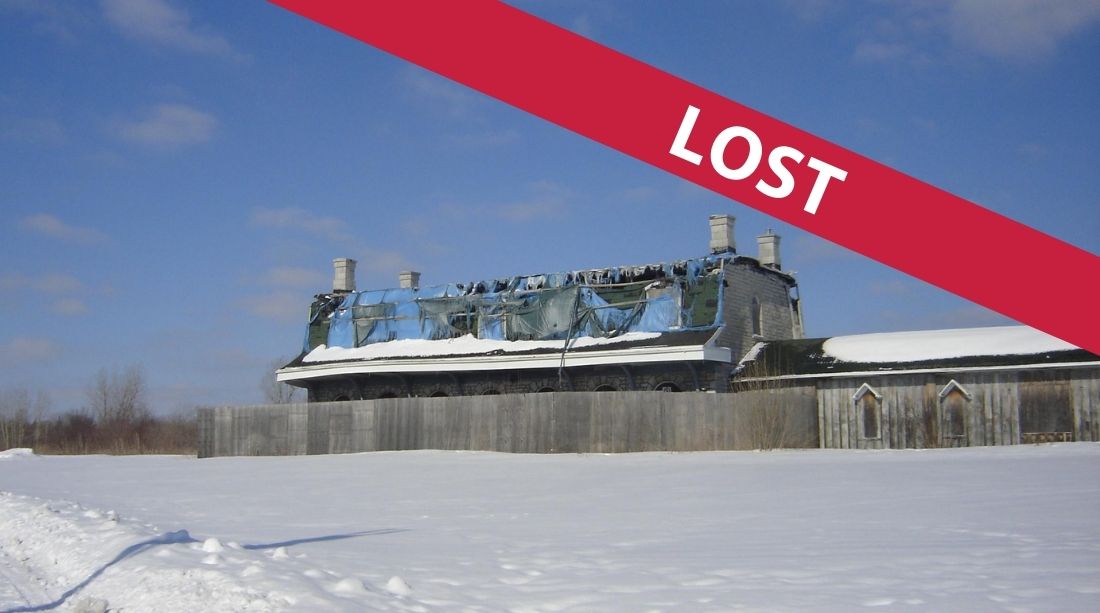The Old Grand Trunk Railway Station

LAST CALL FOR HISTORIC TRAIN STATION
Kingston’s first train station remains in critical condition. If the present level of neglect continues, this historically significant site will be lost. It is an all too common example of:
• weak federal legislation;
• the inability of municipalities to effectively enforce maintenance standards;
• the lack of funding available to property owners who remain stewards of our national heritage
Despite the recognition of the station’s importance by all levels of government, concerned citizens, and community groups, a satisfactory arrangement that would lead to the intelligent, adaptive reuse of this site has not been found. The survival of the station and its premises has reached the point where some form of action is critical.
Background:
Built of solid grey limestone in 1856, Kingston’s first train station was once one of the Grand Trunk Railway’s finest and busiest, serving as a crucial mid-way stopping point along the shipping and transportation corridor connecting Canada East and Canada West’s two major commercial centres, Montreal and Toronto. As well as the landmark limestone station with its distinctive mansard roof, the site included a number of maintenance buildings, a Royal Mail building, its own water tower and a turntable. Its importance was reflected in the architectural scale and design of the main buildings; by the diverse array of related operational buildings; and by the multiple engineering and maintenance related functions that the site served. The limestone station and a brick passenger refreshment building, constructed in 1895 to replace a previously existing wooden one, are all that remain on the site. The Kingston station, also known as “the outer station” remained a critical element in the Canadian National Railway’s operations when it succeeded the Grand Trunk in 1923.
The site also reflected the importance of Kingston as a commercial and industrial centre in its own right. Located two miles north of the city’s downtown (to avoid the land speculation prices of the day), it became the centre of a new sub-community known as Kingston Junction. Houses, stores, schools and churches sprang up to serve railway employees and their families. The original station buildings are counted among the few structures that remain. The station closed to rail service in 1974 after a new station was opened in the city’s west end. The Clapperton Crystal Company used it between 1975 and 1983. Three years later, in order to provide some measure of protection, the City of Kingston designated the buildings under the Ontario Heritage Act. In 1994, the site was designated under the federal Heritage Railway Stations Protection Act. The Pig & Whistle renovated the interior of both buildings to operate a restaurant from 1987 to 1992.
It has remained vacant and abandoned since then. A fire occurred in 1996 while the City was prosecuting CN for violating property standards due to its failure to maintain the premises. The fine was set at $5,000. After failing to meet two deadlines to make emergency repairs to the 1855 building, the City unilaterally ordered the work to be completed, and charged CN an additional $10,000 for the expenses it incurred. In 2003, the City commissioned heritage preservation consultants (André Scheinman and the McCormick Rankin Corporation) to develop a conservation master plan for the site.
Although the original limestone was judged to be in “relatively good condition” it was determined that the extensive damage to the roof, dormer windows and most of the second storey would require reconstruction. The restoration costs were estimated at $1.6 million, resulting in a proposed “gifting agreement” that would have CN sell the property to the City for $1, rejected by a newly elected municipal council in 2004.
This nomination was submitted by the Frontenac Heritage Foundation located in Kingston, Ontario.
Location: Kingston, Ontario
Top 10 Endangered Places List: 2008
Status: Lost
